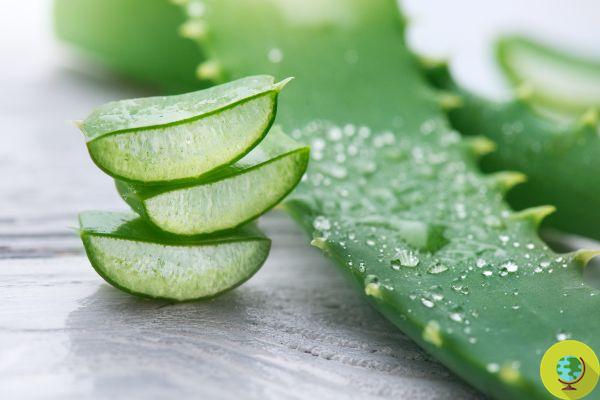
On 8 April, the new European regulation which prohibits the sale of products with aloe-emodin came into force.
In 2018, EFSA concluded that due to a lack of data, there is uncertainty in the safety assessment. Meanwhile, the Commission has proposed a total ban based on the precautionary principle and on 8 April, the new Regulation that prohibits the sale of products with aloe-emodin came into force
Always appreciated because considered one of the main natural remedies in the treatment of various ailments, the aloe-based supplements become products banned by the European Union: in fact, the European Commission stops the hydroxyanthracene derivatives, naturally present in aloe. But the producers are not there and sign a petition.
Already in March 2020, the European Commission had presented to the public consultation a proposal to ban aloe for alleged safety problems, a regulation that limited the use in food supplements of certain substances, hydroxyanthracenic derivatives (HAD), obtained from aloe and other plants.
Also read: These food supplements are dangerous and should be banned (including aloe juice)
Now, on April 8, 2021, the new EU Regulation 2021/468 has entered into force, amending Annex III of the 2006 Regulation which in Europe - as regards botanical species containing hydroxyanthracene derivatives - prohibits the sale of products containing aloe-emodin, emodin, dantronee preparations of aloe containing hydroxyanthracene derivatives and in addition establishes the rules on the addition of vitamins, minerals and other substances to foods (EC no. 1925/2006).
Hydroxyanthracenes are chemical molecules of natural origin also present in senna, rhubarb, cassia and frangula.
The Regulation of 18 March 2021 was published in the Official Journal of the European Community on 19 March 2021.
In particular, it is forbidden, among other things:
- “Aloe-emodin and all preparations in which this substance is present
- emodin and all preparations in which this substance is present
- preparations based on leaves of Aloe species containing hydroxyanthracene derivatives
- dantrone and all preparations in which this substance is present
The reason for the stop, explains the EU Commission, is that the European Food Safety Authority has found that “the hydroxyanthracene derivatives aloe-emodin and emodin and the structurally analogous substance dantrone have been shown to be genotoxic in vitro. Aloe extracts have also been shown to be genotoxic in vitro, most likely due to the presence of hydroxyanthracene derivatives. Aloe-emodin was also shown to be genotoxic in vivo. The total extract of aloe and the structural analogue dantrone proved to be carcinogenic ”. Read the EFSA opinion HERE.
Therefore, "considering that aloe-emodin and emodin may be present in the extracts, the Authority concluded that hydroxyanthracene derivatives should be considered genotoxic and carcinogenic unless there are specific data showing the contrary, and that extracts containing hydroxyanthracene derivatives raise safety concerns, although uncertainties remain. The Authority was unable to provide information on a daily dose of hydroxyanthracene derivatives that does not raise human health concerns ”, adds the regulation that established the ban.
The petition
Meanwhile, the Ehpm (European Federation of Associations of Health Product Manufacturers), the Federation that brings together the European associations of food supplement manufacturers, speaks of "obvious scientific deficiencies" raising important concerns regarding the EU evaluation of botanical products and believes it is It is necessary to devote additional time to producers to rather confirm the safety of aloe.
Specifically, they launch the campaign is #WeFightForNaturalHealth and they ask "for more time to assess safety issues" and for manufacturers to have the opportunity to demonstrate that their products are safe. They remind the members of the European Parliament of the need to support them "by raising objections against the aforementioned regulation in the framework of the votes in the ENVI committee and in plenary". Finally, according to the EHPM, if the European Parliament approves the European Commission's proposal on aloe, thousands of jobs would be lost in the Union, while thousands more will lose their jobs in production plants around the world. Furthermore, it is a measure which severely limits the use of natural substances for health and which is contrary to the principles of the European Green Deal.
HERE you can find the petition.
Sources: European Union / European Commission / EFSA
Read also:
- Aloe vera: what happens to the body with one shot a day
- Aloe Vera juice: 10 health benefits and reasons to drink it
- Aloe Vera: how to extract the gel and 10 ways to use it


























